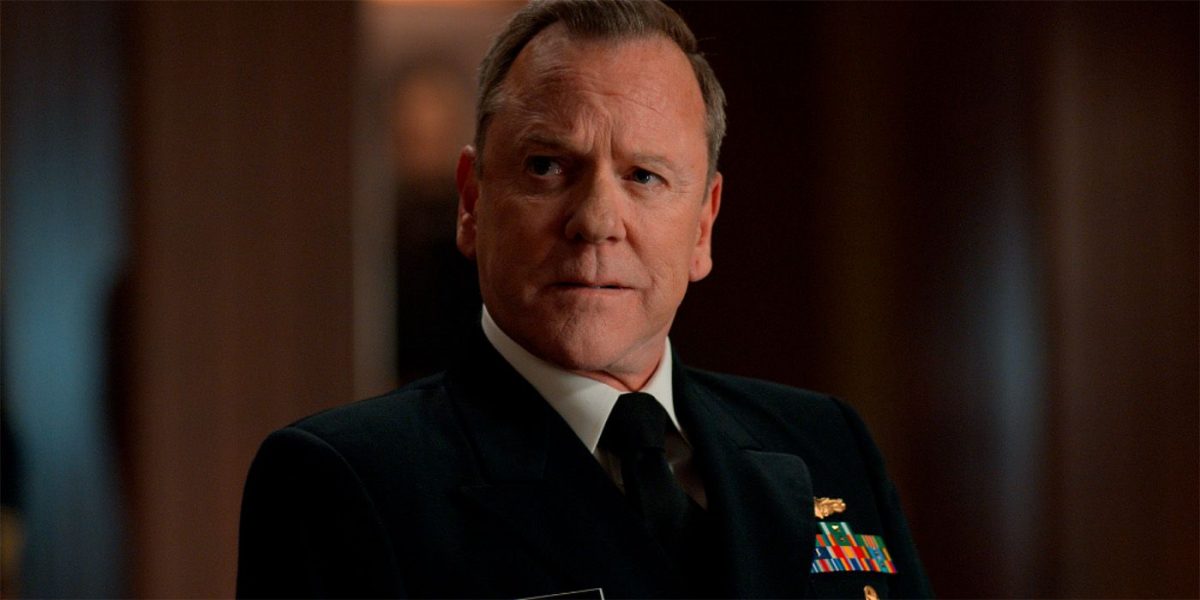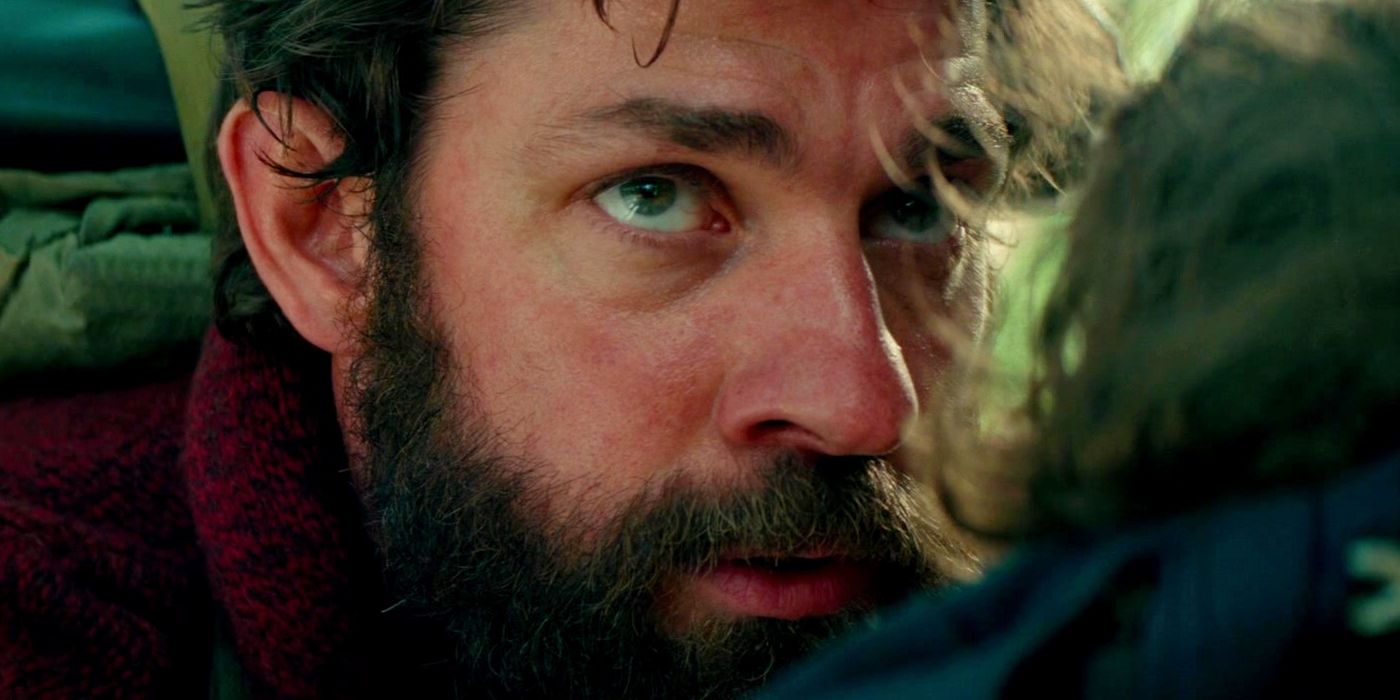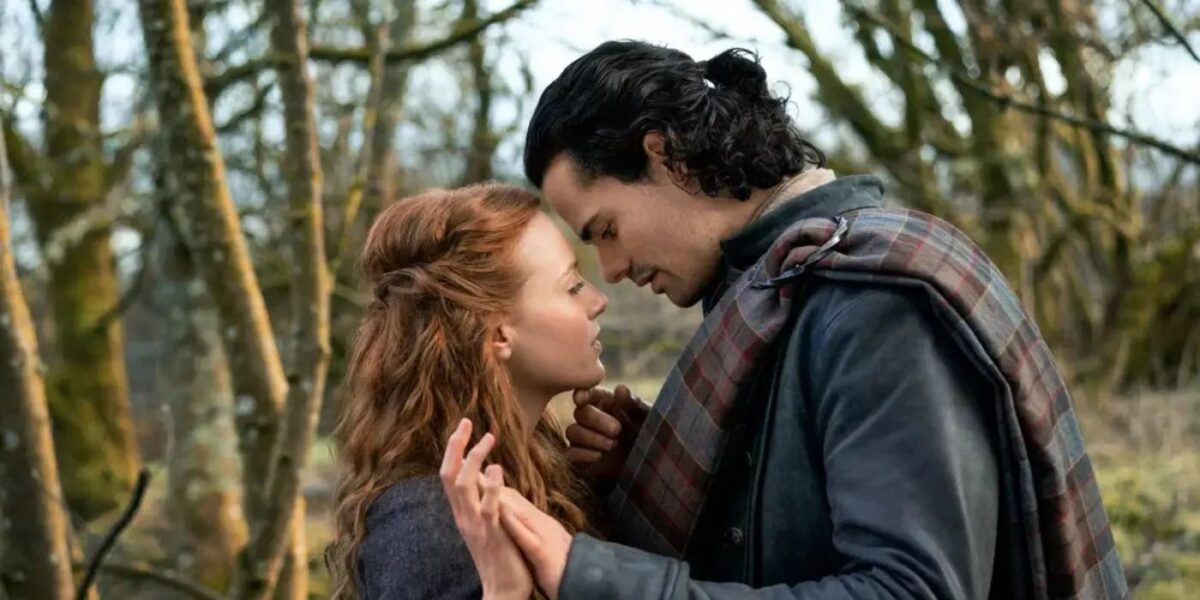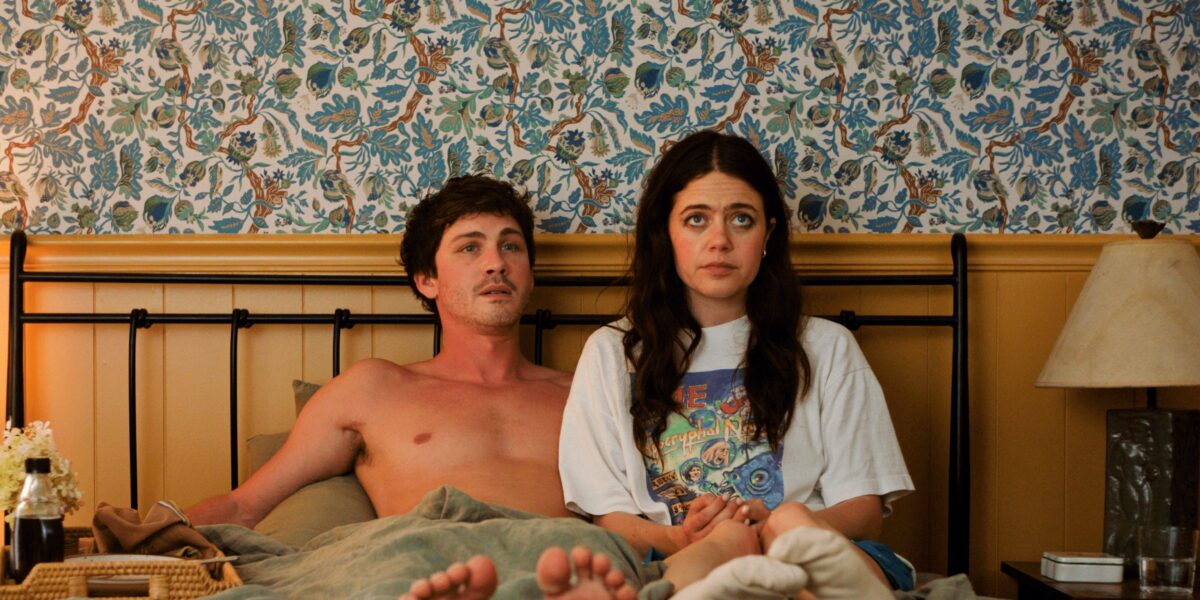
‘The Caine Mutiny Court-Martial’ Review — Friedkin’s Final Film
Oct 2, 2023
It’s not often that we so definitively know an artist’s last project will, in fact, be their last. The world isn’t as clean and tidy as that, and oftentimes, it’s tragic to find that a piece of art is the last bastion of a truly great mind. So examining William Friedkin’s final film, The Caine Mutiny Court-Martial, feels like no easy task after his passing in August of this year — one as gargantuan as determining whether or not someone committed a mutiny, it seems.
The setup for the legendary French Connection director’s final film is simple: a legal drama that follows the trial of naval officer Stephen Maryk (Jake Lacy), who’s been court-martialed after relieving his commanding officer, Commander Queeg (Kiefer Sutherland), of duty during a time of crisis on their ship. The trial exists to determine whether Maryk’s actions were justified or, indeed, mutinous, and he is put against both prosecutor Commander Challee (Monica Raymund) and the military court as a whole, helmed by the late Lance Reddick as Captain Luther Blakely. His only defense is Lieutenant Barney Greenwald (Jason Clarke), a naval aviator and lawyer who’s reluctant to even have to defend his fellow officer against such a heavy charge.
To be fully transparent, I always thought of Friedkin as “the Exorcist guy” before his passing in August — and really, I’m still hesitant to touch that movie with a ten-foot pole. Caine Mutiny is my first and only exposure to his work as a director (and as a screenwriter, given he also wrote the teleplay), and as such, I can’t say whether, as his final film, it was a worthy endcap to a sixty-year legacy. I’m of the mind that no one piece can possibly be representative of an artist’s entire legacy, and ultimately, maybe that’s for the better since this film finds itself in a slow and underwhelming place.
The Conundrum of the Locked-Room Story
Image via Showtime
I love a locked-room story — it’s why I adored Ted Geoghegan’s Brooklyn 45 so much — and Caine Mutiny might be the pinnacle of them. Though it leaves the room where Lt Maryk is being tried a handful of times, the audience is stuck there for the majority of the hour and forty-five-minute film, enduring every moment of a trial they never find out the outcome of. As a result, the film’s roots as a stage play are more than obvious, but to Friedkin’s credit, he let it exist as such, choosing not to force his hand into the staging in an attempt to make it more than what it is.
It’s exactly what you would expect from a Sunday night Showtime drama. In my head, it felt like one from the mid-aughts when I was a kid when Nickelodeon shut off for the night and it turned into Grown-Up Time. No frills, no sudden flashbacks to keep the audience on their toes, just simple interrogation, question after question, monologue after monologue. Friedkin lets his actors breathe, still, unmoving cameras capturing every minutiae of a performance — a necessary factor, in a story governed (at least partially) by law and order.
Some audiences might begin to flag around the halfway point of the film. There’s nothing about Friedkin’s teleplay or his direction to entice audiences other than the mountains of dialogue being delivered at every available moment, with barely a pause for breath for anyone except Lacy’s Maryk, who sits largely silent and invisible despite being the reason for the film’s entire existence. Heavy amounts of information — oftentimes contradictory and complex — are thrown at audiences with exacting precision, and even as a self-professed fan of films that are mostly (or in this one’s case, all) dialogue, I found myself wanting for the kind of intermission built into the stage version of this story.
RELATED: No One Hated ‘The Exorcist II’ More Than William Friedkin
‘The Caine Mutiny Court-Martial’ Is Saved by Its Captivating Performances
Image via Showtime
The actors, at least, do their damndest to keep your eyes on them, even as they sit unmoving in their chairs. It’s a round-robin of both recognizable faces and complete strangers as the trial goes on, each giving a more elaborate performance than the last. Tom Riley and Francois Battiste stand out in particular, with Jay Duplass and Lewis Pullman bringing up the rear — the latter in a surprisingly subdued performance compared to his other recent work. Each is the piece in a larger puzzle, and there’s very little in the way of character work here; it’s like watching a succession of monologues in an acting class, each actor proving they can hold their own in a scene. Some are more successful than others, and it’s Raymund and Clarke who hold everything together with their questioning, like watching the finals at the US Open.
Maryk and Queeg, naturally, are the faces that break up the proceedings, their lengthy monologues showcasing two men deeply at odds, one just as emotional and high-strung as the other. Sutherland does, undoubtedly, give an impressive performance as a clearly tense and potentially unwell captain being put through the wringer by Greenwald. He appears for only about twenty minutes of the film — despite its trailer focusing entirely on his testimony — and it reminds me that, like his appearance in fellow October favorite The Lost Boys, he continues to reign supreme at playing the most interesting character in the room who also happens to have the least amount of screentime.
It’s Clarke’s Greenwald, though, that sweeps the floor with everyone else – his second outing as an interrogator, after this year’s box office juggernaut Oppenheimer. He and Raymund are the beating heart of the film (alongside Reddick, given painfully little to do), and it’s him you focus the most on, even over Maryk. You wonder why someone so reluctant to even be in court has taken up such a specially difficult task, and as he warms to it, it’s clear that it’s Clarke, not Sutherland, giving the star performance here.
The Film Falters Under Outdated Ideals of Patriotism
Image via Showtime
It’s a shame that such a solid set of performances are brought down by an underlying thread of jingoism, one that’s hard to put too fine a point on until the film’s final scene. The final shot of the film is a punch to the throat, a distinct flourish on Friedkin’s part that I absolutely adored, but its origins leave me feeling more than slightly queasy. It’s a sudden “sympathy for the devil” moment, very nearly eliminating the ambiguity the rest of the film strives for — definitively answering its own question of “who’s in the right here.” The film becomes largely sympathetic to Queeg in its final moments, and it becomes obvious as the credits roll that there has been no reexamination of the play’s context by Friedkin for 2023, that the exceedingly faithful patriotism to the Navy remains exactly the same as it was in 1954, the last time Caine Mutiny was adapted for the big screen. More so, even, with Friedkin factoring 9/11 into things.
It makes Greenwald, who was interesting to watch but in no way felt like the emotional core of the story, into the hero of the hour — or at least, it tries to, with only a mild degree of success, given that things turn around so quickly that I feel dizzy looking at anyone but Pullman, whose face remains a stoic mask of cynicism through his approximately eight minutes of screentime. I have a hard time reconciling that much faith in the military-industrial complex with not only the world we live in now, but simply the events of the rest of the film. It manages to twist my largely neutral (and leaning positive) feelings about said other ninety minutes into something slightly more sour — my good opinion, once lost, is most likely lost forever, to bastardize Jane Austen.
As a result, the film as a whole sits oddly in my mind as I try to stomach it, and not by the fault of any of the actors. Rather, it begs the question of why we needed this new version in the first place — why Friedkin was so adamant to make it, and what we’re getting from the ultimate sympathy with Queeg and the system that created him.
Rating: C+
The Big Picture
The Caine Mutiny Court-Martial, William Friedkin’s final film, feels slow and underwhelming, lacking the excitement and narrative depth one may expect. The film relies heavily on dialogue, with minimal action or visual stimulation, making it feel akin to a Sunday night Showtime drama from the mid-aughts. Despite solid performances by the actors, the film is weighed down by outdated ideals of patriotism.
The Caine Mutiny Court Martial premieres on Paramount+ on October 6.
Publisher: Source link
Starz’s Steamy, Emotional Prequel Series Changes Everything You Knew About Jamie and Claire’s Love Story
With the end of Starz's epic adaptation of Outlander looming, the initial expectation might not have been that there was more story to tell — but fittingly, showrunner Matthew B. Roberts has gone back to the past as a way…
Aug 3, 2025
Seth Rogen’s Rom-Com-ish Apple TV+ Show Continues To Be A Good Hang
The second Apple TV+ series released this year that features Seth Rogen, “Platonic” season two definitely isn’t going to get the amount of insidery raves and Emmy nominations that “The Studio” received. Yet, after a first season that began a…
Aug 3, 2025
Sophie Brooks’ Attention-Grabbing Premise Beats The Discourse, Even With Shaky Execution
This age of modern dating, and its myriad uncomfortable situations and odd terms, has already spawned a number of movies aimed at capturing the difficulties of finding love today. Whether it's covering the strangeness of social media or the concept…
Aug 2, 2025
Leanne Morgan and Chuck Lorre’s Charming, Relatable Netflix Sitcom Will Have You Laughing Out Loud
With humble beginnings in booking comedy gigs and putting out comedy specials on YouTube, Leanne Morgan steadily climbed her way onto Netflix, where she released her stand-up special Leanne Morgan: I'm Every Woman in 2023. This year, she tried her…
Aug 2, 2025











